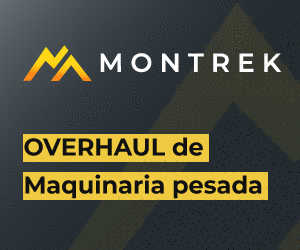The world’s second largest miner Rio Tinto (ASX, LON, NYSE: RIO) is facing a fresh setback at its massive Oyu Tolgoi underground copper project in Mongolia as an administrative court has backed a non-governmental organization’s claims that the government didn’t follow due process on the agreement that underpins the asset’s development.
Local Darkhan Mongol Nogoon Negdel group, which advocates for ecological balance and economic independence, is disputing the agreement signed in 2015, as well as the authority of Mongolian officials involved in the negotiations leading to the deal.
The court’s formal written ruling
is expected to be released in the coming weeks, Rio said.
The ruling is a fresh blow to a project that has been plagued by delays, legal probes, cost overruns and government pressure
The looming lawsuit is one of many
recent challenges Rio Tinto has faced in Mongolia in the past two years.
In January 2018, the country’s
government served Oyu Tolgoi with a bill for $155 million in back
taxes — the mine’s second tax dispute since 2014. The company said
at the time the charge related to an audit on taxes imposed and paid by the
mine operator between 2013 and 2015.
Shortly after, the southern Gobi
Desert-based mine had to declare force majeure after protests by Chinese
coal haulers disrupted deliveries near the border.
The situation prompted Rio’s chief executive Jean-Sebastien Jacques to visit Prime Minister Ukhnaagiin Khurelsuk to discuss how to build “win-win” partnerships. The trip was followed by the company’s announcement that it was opening a new office in the country, focused on exploration and local links.
The issue resurged in April, when a group of Mongolian legislators recommended a review of the 2009 deal that launched construction of the mine. It also advised to revoke a 2015 agreement allowing for an underground expansion.
Rio warned in July this year that the under execution expansion would take 16-30 months longer than expected. It also warned the project would cost as much as an additional $1.9 billion to the projected $5.3 billion investment, due mainly to a heightened risk of rockfalls.
Oyu Tolgoi was discovered in 2001 and Rio gained control of it in 2012. The ongoing expansion the mine is expected to lift production from 125–150kt this year to 560kt at full tilt from 2025, making it the biggest new copper mine to come on stream in several years.
The giant mine is one-third owned by Mongolia’sn government and two-third held by Canada’s Turquoise Hill Resources (TSX, NYSE:TRQ). Out of Turquoise’s 66% share, Rio owns 51% in the project.
Both Rio and Turquoise refuted suggestions that the underground mine development and financing plan (UDP), or any other foundational agreements for Oyu Tolgoi, were illegal.






